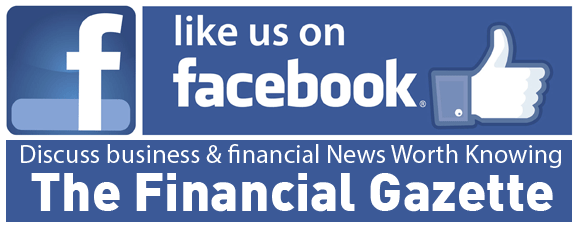

MOST organisations have boards predominantly made up of non-executive directors. The board’s role is to give strategic direction to the organisation, including oversight over the leadership and management of the organisation. 
I have been on more than 13 boards in my career and learned a lot. I have been on the boards of listed companies, the public sector, NGOs and organisations outside Zimbabwe. The challenge is the same; boards must provide leadership to the organisation.
In my experience, effective boards have members who are very clear about their mandate. This means having board members who are conscious that their primary role is not to run the company but rather to lead it. Conflict can arise when boards become involved in the day-to-day running of the business, which is the preserve of the chief executive (CE) and leadership team.
As they say, the board must have “nose in and hands out”. The nose must be in to sniff how things are going without undue interference in how the CE should lead the business. When there is no clarity on the board’s role and management, the board becomes operational and, in the process, makes the board ineffective.
The above recommendation assumes that the board has the right executive team to lead the organisation. I have noticed that boards become operational when the executive team cannot lead the business. However, some boards become too operational because they love power and want to exercise power over executive leadership. While the general understanding is that the board has the power to hire and fire executives, in practice, many factors constrain that power. It is always hard to have a consensus on who should be in the executive team. Based on personal interests and preferences, personal interests can degenerate into factions.
The role of the chairperson is critical in making the board effective. Successful boards have a consultative chairperson who understands their role as that of a lead facilitator of the board than the boss of other board members. The chairperson must not make unilateral decisions.
They must always use the board structures to get input from board members and drive the board towards consensus decisions. The basic rule is that board members will not take ownership of decisions from which they were excluded.
Effective boards allow board members to speak up when they see issues they feel need to be addressed. The chair must allow professional dissent by board members. That way, no issues will be excluded from scrutiny.
When board members feel safe to put unpleasant discussions on the table without fear of victimisation, that board is on the right path. Board members must be allowed to respectfully disagree with the chairperson or any other board member when this is necessary.
One of the biggest obstacles to board effectiveness is that members come to the board without reading the pack submitted by executive management. Such board members waste people’s time. Sometimes, you find a board member asking questions that have already been answered in another part of the report because they have not read it in full. If you are in such a situation, you are on a board that needs help.
I was reading in some articles that Amazon realised this was a big problem and now allocates time for board members to read the board pack in the meeting. The meeting will start after everyone has read through the board pack.
The other challenge is that sometimes boards focus on trivial and operational matters. It is not an easy task to focus on strategic issues for various reasons.
To do this, you need the right executive team capable of handling all the operational issues. If the executive can not handle operational issues because of the risks associated with some of them, the board will end up intervening. In an ideal set-up, the board would focus on issues around the strategic direction of the business, culture transformation, succession planning, ensuring the business has the right executive team and risk management. This is not easy, especially when the board feels management is incapable of handling some issues.
 One of the board’s biggest challenges is when members do not work as a team. In such situations, the individual board members drive personal agendas, sometimes in factions. Once that starts happening, the board’s more significant cause is lost.
One of the board’s biggest challenges is when members do not work as a team. In such situations, the individual board members drive personal agendas, sometimes in factions. Once that starts happening, the board’s more significant cause is lost.
In other organisations, if you have a “powerful” CE, you may find a situation where they are fighting for control with the chairperson. To assert their power, the CE may drip-feed the board with their preferred information and deprive the board of the necessary information to make critical decisions. In such a situation, the board becomes dysfunctional.
Setting the agenda for board meetings is the starting point in giving direction to the business. The agenda should always speak to the strategic role of the board. If the chairperson allows trivial issues to be discussed in the committees or the board, it cannot be effective.
Dysfunctional committees mean a dysfunctional board. The structure of the committees has an impact on how effectively the board discharges its duties. The committees deal with the technical aspects of the issues brought to them by executive management.
The committee then reports to the board with its recommendations on all issues that need board approval or direction. If the committees are effective, the board meetings should not take long.
Some board meetings take the whole day. It should not be like that. If your board meetings are focused, they should not take more than three hours. On some days, when some issues need more exploration, the meeting can take longer than three hours. Let these be exceptional cases and not the norm.
To be successful as a board member, you need to be dedicated because board issues can consume a significant amount of time.
Overall, the board needs members who respect each and allow them to maintain their professional independence.
In conclusion, not every board member is capable of discharging their duties for the benefit of the business. Just like employees, you also find incompetent board members. I think most organisations are not thorough when selecting board members and end up with placeholders who add no value.
Nguwi is an occupational psychologist, data scientist, speaker, & managing consultant – Industrial Psychology Consultants (Pvt) Ltd, a management and human resources consulting firm. Email:mnguwi@ipcconsultants.com or visit our websites https://www.thehumancapitalhub.com/ and www.ipcconsultants.com